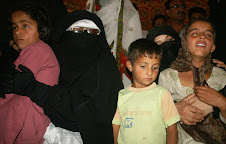Tariq A. Al-Maeena talmaeena@aol.com
At the time of the partition of the Indian Subcontinent back in 1947 by the hastily retreating British Empire, Kashmir was supposed to be acceding to Pakistan based on its overwhelming number of Muslims that made up nearly 80 percent of its inhabitants.
However, after some resistance by the ruling maharaja at the time and the subsequent foray of Pakistani forces into the territory that drew an immediate response from the Indian Army, the United Nations stepped in.
The UN Security Council passed Resolution 39 on Jan. 20, 1948, establishing a special commission to investigate the conflict. Subsequent to the commission’s recommendation, the Security Council ordered in its Resolution 47, passed on April 21, 1948, that the invading Pakistani Army retreat from Jammu & Kashmir and that the accession of Kashmir to either India or Pakistan be determined in accordance with a plebiscite to be supervised by the UN.
It has been over 61 years since that resolution was passed, and yet the people of Kashmir remain mired in Indo-Pakistan politics. The dispute over Kashmir had, in fact, led to two wars between the neighboring countries and has escalated tensions since. But recent events on the world stage such as the Middle East crisis, Iraq and Afghanistan have relegated the problem to the back burner.
Enter Muammar Qaddafi, the maverick ruler of Libya. Shattering protocol by speaking for 90 minutes instead of the allotted 15 in an address to the UN General Assembly, Qaddafi who was introduced in the General Assembly Hall as the “leader of the revolution, the president of the African Union and the king of kings of Africa” touched upon many issues, one of them being the current status of Kashmir.
Supporting the idea of an independent Kashmir, much to the embarrassment of Indian diplomats present, Qaddafi stated that “Kashmir should be an independent state, not Indian, not Pakistani. We should end this conflict. It should be a Ba’athist state between India and Pakistan.” The Indian delegation of External Affairs Minister S.M. Krishna, Foreign Secretary Nirupama Rao, and Hardip Singh Puri, India’s permanent representative to the UN in New York, seemed obviously discomforted.
Kashmir’s pro-freedom leaders on Thursday welcomed the statement of Libyan president at the UN General Assembly and urged India and Pakistan to resolve the Kashmir issue according to the wishes and aspirations of the people. And Pakistani Prime Minister Syed Yousaf Reza Gilani talking to media in the eastern city of Multan last Thursday said that Kashmir is the core issue and without resolving it no durable peace is possible in the region.
Gilani added that dialogue was the only way to move forward for resolving all outstanding issues between Pakistan and India, according to the local NNI news agency. Pakistan, the prime minister said, will take up the issue of Kashmir and water with India during forthcoming talks. All this must be music to the ears of a forgotten people.
While Qaddafi’s outbursts have often been dismissed as an exercise in triviality, this latest suggestion coming from the Libyan leader should be validated by a fresh round of political maneuvers that would satisfy the aspirations of the Kashmiri people.
Let the people of Kashmir decide their future. India, a democracy must not feel discomforted by the will of the Kashmiri people. And Pakistan should not assume that the Kashmiris would automatically accede to them. The Kashmiris are a proud people and the choice must be theirs and theirs alone.







